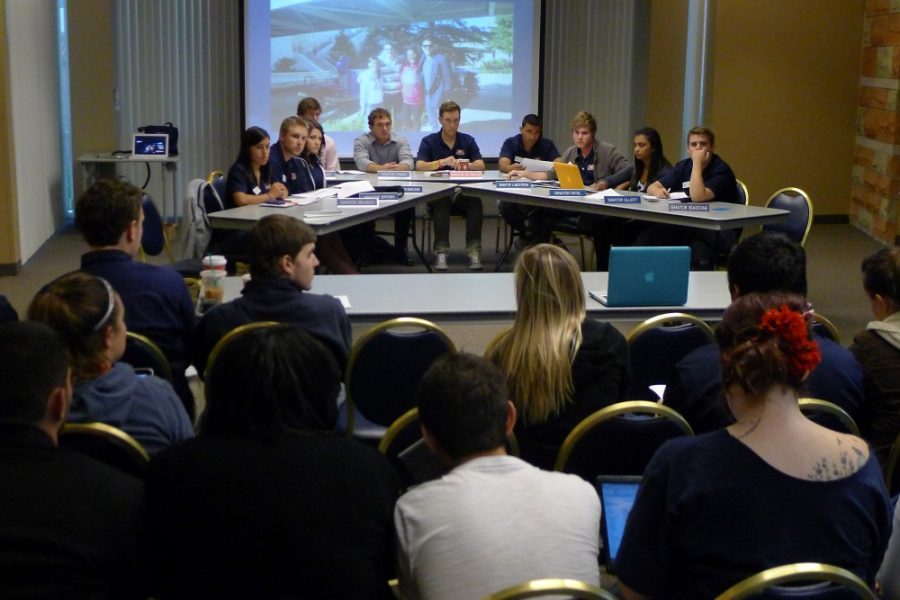After the last presidential election’s controversy, ASUA is exploring revisions to its disciplinary system.
Under the proposed changes, a candidate for the Associated Students of the University of Arizona could receive multiple warnings for different violations and never technically receive a strike, depending on the nature of the violation.
A candidate would need to commit multiple violations of the same type to merit a strike, and after three strikes a candidate can be disqualified. But if a violation were something that could be corrected, such as removing a poster that had been placed in a prohibited area, a candidate would have 24 hours to rectify the situation without penalty. Only after the 24-hour period had elapsed would a candidate be subject to a strike.
The proposed revisions come after the disqualification of both of last election’s candidates, which forced a special election. Both current President James Allen and opponent Daniel Hernandez, were originally disqualified from the race for having too many elections code violation checks. Under last election’s code, a candidate could receive up to 10 violation checks.
Another potential change is in the scope of the elections commissioner’s power.
Last year’s commissioner, current Interfraternity Council President Michael Colletti, had the authority to determine what constituted a violation of the elections code and what the repercussion of that violation would be.
Current Elections Commissioner Mikindra Morin said she decided to change the code to set up a way to uniformly handle violations. Morin said she thinks one person having all the power to decide disciplinary action for a violation is unfair.
Another proposed revision of the code is the end to a ban on campaigning through mass communication, such as emails, text messages and social networking sites.
One of Allen’s violations last year involved sending unsolicited mass text messages to Greek Life members. The proposed changes would no longer prohibit similar actions, as long as messages aren’t sent through UA Listservs or class lists. Students would be allowed to place themselves on a “no contact list” that would bar candidates from contacting them in such a fashion.
Sen. Erik Lundstrom said the changes to the code make it so that each candidate could technically violate every part of the code once and get nothing more than a warning for each. Sen. Danielle Dobrusin said this system could create an environment where the benefits of deliberately violating the code could sometimes greatly outweigh the punishment for such an action.
Senators suspended conversation on the matter without voting on the revisions. They will take up the matter again during their meeting next Wednesday.









